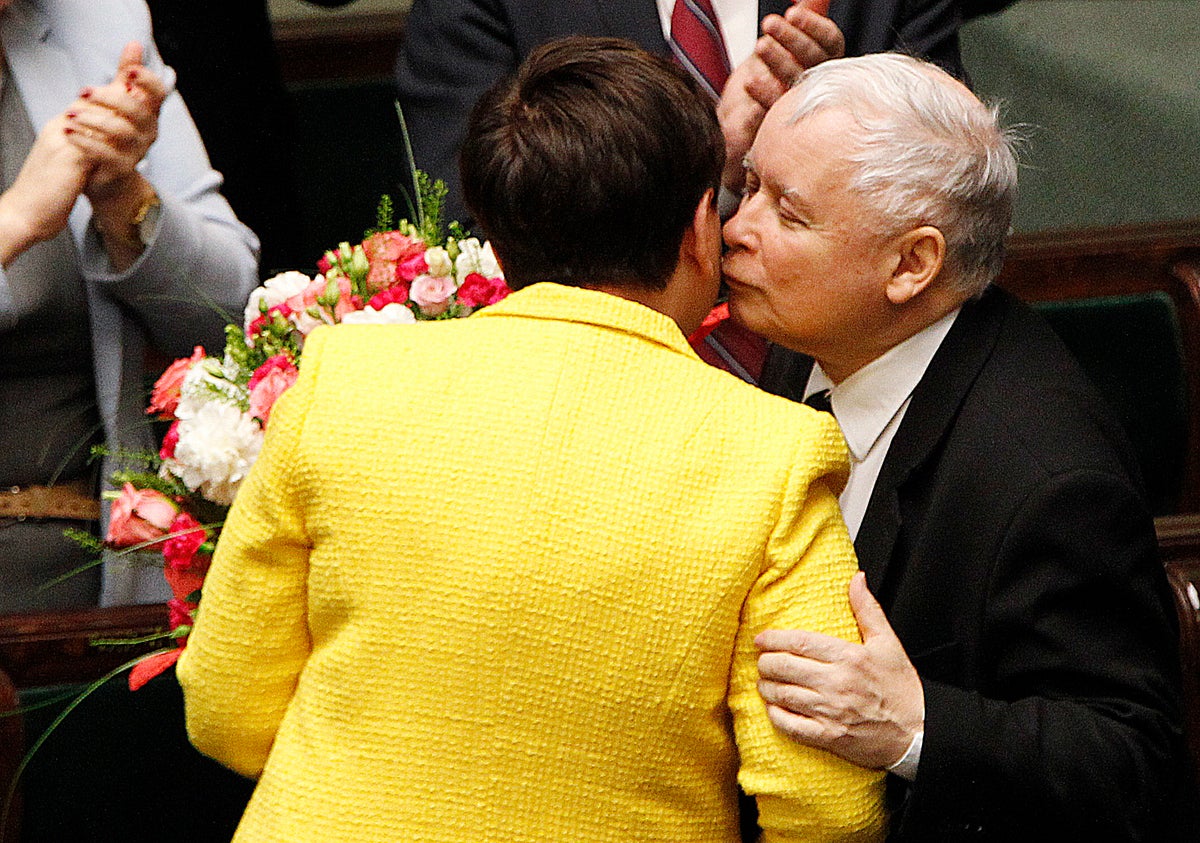
Poland's ruling party leader has triggered anger in the country and an explosion of jokes by claiming that the country's low birthrate is partly caused by overconsumption of alcohol by young women.
Opposition politicians and many other critics accused Jaroslaw Kaczynski, a 73-year-old lifelong bachelor, of being out of touch. They also argue that Kaczynski, the most powerful politician in Poland since 2015, is himself partly responsible for the the low birthrate in the central European nation of 38 million people.
In particular, critics point to restrictions on abortion that have discouraged some women from seeking to get pregnant. Others note the difficulty young people have in raising families due to rising costs in a country where inflation is now nearly 18%.
Kaczynski, leader of the populist ruling party, Law and Justice, made his remark on the weekend as he travels around the country seeking to rally support for his party ahead of next year’s parliamentary election.
Kaczynski was speaking to an audience Saturday about the demographic challenge of “far too few children” being born.
“And here it is sometimes necessary to say a little openly, some bitter things. If, for example, the situation remains such that, until the age of 25, girls, young women, drink the same amount as their peers, there will be no children,” Kaczynski said.
He added that the average man “to develop alcoholism has to drink excessively for 20 years” and “a woman only two.”
“I am really a sincere supporter of women’s equality, but I am not a supporter of women pretending to be men, and men pretending to be women, because this is something completely different,” Kaczynski said.
The remark triggered some predictable jokes along the lines of alcohol actually being helpful to conception, but also a lot of serious criticism.
When one government representative argued on a TV talk show that alcohol's influence on fertility is actually a legitimate matter for debate, an opposition lawmaker, Kamila Gasiuk-Pihowicz, shot back: “This is not a debate, it is insulting Polish women.”
The traditionally Roman Catholic country already had one of Europe's most restrictive abortion laws, with abortions allowed in very few cases, before 2020. Then, a new ruling said that women may no long terminate pregnancies in cases where the fetus has serious abnormalities and is not viable after birth.
That sparked the largest protests in Poland in decades. There have been cases since then of pregnant women dying even though a risk to the woman's life is a legal grounds for abortion under the current law. Women's rights advocates say such cases occur because doctors are afraid to terminate pregnancies even when the woman's life might be at risk, fearing legal consequences to themselves.
Another opposition lawmaker, Aleksandra Gajewska, pondered whether Kaczynski was speaking out of some political calculation, or not. “Is Jaroslaw Kaczynski a ruthless, mean cynic, or is he mentally ill?” she said.
Kaczynski defended himself, saying that “an honest politician, if he knows such a thing, must talk about it."
The number of births per woman in Poland plummeted from 3 in 1960 to 1.2 in 2003, according to World Bank statistics.
It began rising again somewhat after 2003, and got a boost after Kaczynski's government introduced a monthly cash bonus of 500 zlotys per child after winning power in 2015, hoping to encourage larger families. But the birthrate is again declining according to Polish government statistics, and Kaczynski admitted last month the program isn't working as intended. The birthrate stood at 1.32 in 2021, according to Polish state statistics, which is low but still higher than some other European countries.







